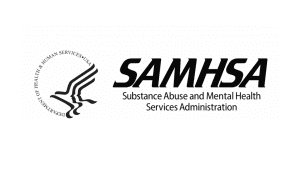Suicide Prevention – Warning Signs, Statistics, Risk Factors, and How to Save a Life

Ninety-three percent of adults surveyed in the U.S. think suicide can be prevented. This begs the question – how? In this blog post, we will talk about suicide prevention, uncover some myths and facts about suicide, take a look at local and national suicide statistics, discuss the warning signs and risk factors for suicide, talk about some ways to get involved in suicide prevention work in Nassau County and share local and national hotlines and crisis support teams.
Suicide Myth Busters
Before we jump into the details, let’s play a little game of Myth Busters. Answers to these questions (with some brief explanations) can be found at the bottom of this post.
- (Myth or Fact): People who talk about suicide aren’t serious
- (Myth or Fact): There’s nothing you can do if someone is suicidal
- (Myth or Fact): You have to mentally ill to consider suicide
- (Myth or Fact): People who are suicidal want to die
- (Myth or Fact): Talking about suicide will give someone the idea
- (Myth or Fact): They just want attention, they won’t actually do it
National and Local Suicide Statistics
On a national level, the scope of the problem is severe. In 2019 alone, 47,511 Americans died by suicide. This makes suicide the 10th leading cause of death in the U.S. And that averages out to 130 suicides a day. On top of that, there were 1.38 million suicide attempts in the same year.
If we look at our local numbers, suicide jumps from the 10th to the 8th leading cause of death with 17 suicides completed in 2019. Sixty-five of the estimated 1.38 million suicide attempts took place right here in Nassau County, FL.
Both locally and nationally, these numbers are alarming. But the good thing is that suicide can be prevented. A world without suicide is possible, and it all starts with learning the signs.
Warning Signs of Suicidal Ideation
Here are a few brief examples of signs you may notice in a loved one that is struggling with suicidal ideation. To help, we have broken them into ‘direct’ and ‘indirect’ signs. Direct signs are signs or phrases that seem more intentional. Indirect signs tend to allude to or suggest that someone is talking or thinking about suicide.
The number one rule you need to know is that if someone is discussing the idea or concept, no matter how loosely, you should ALWAYS ask the question: “Are you thinking about suicide?”
| Direct Signs | Indirect Signs |
| “I’ve decided to kill myself.” | “I’m tired of life, I just can’t go on” |
| “I wish I were dead.” | “My family would be better off without me.” |
| “I’m going to commit suicide.” | “I just want out.” |
“I’m going to end it all.” | “I won’t be around much longer.” |
| “If (such and such) doesn’t happen, I’m going to kill myself.” | “Pretty soon you won’t have to worry about me.” |
Risk Factors
So, we have now discussed warnings signs of suicidal ideation. But what happens if you don’t hear a loved one come out and say: “I’ve decided to kill myself.”? You may still be worried about their overall well-being and have a gut feeling that they may in fact be considering suicide. Insert risk factors. Risk factors are things you know about any given person’s story. Think of them as a checklist. The more you see, the more serious the situation may be or the more pressure a person may be under. This amount of stress could lead them to consider suicide.
| Behavioral Risk Factors | Situational Risk Factors |
| Any previous suicide attempts | Being fired or expelled |
| Acquiring a gun or stockpiling pills | Loss of a major relationship |
| Co-occurring depression, moodiness, hopelessness | Death of a loved one, especially if by suicide |
| Putting personal affairs in order | Diagnosis of a serious illness |
| Giving away prized possessions | Loss of a cherished therapist, counselor, or teacher |
| Fear of becoming a burden to others |
Alone, or in combination, these risk factors may not necessarily equate to suicidal ideation, but they will prompt you to ask the question directly: “Are you thinking about suicide?” While the conversation can be scary, it’s much better to ask just in case. And if you need help with a loved one that is considering suicide, Starting Point Behavioral Healthcare is here to help. We offer multiple trainings in suicide prevention that are completely free to the community.
Free Suicide Prevention Trainings & Support Groups
As part of our mission to promote emotional wellness and community education and awareness, Starting Point Behavioral Healthcare offers the following suicide prevention training courses and support groups free of charge to the community.
| Question. Persuade. Refer. (QPR) |
| QPR stands for Question, Persuade, Refer. These are the three steps you need to potentially save a life QPR is a 60-90 minute evidence-based course that goes more in-depth about those warning signs and how to handle the conversation that comes afterward. *Training coming in 2022 |
| Mental Health First Aid (MHFA) |
| MHFA is an 8-hour training course that helps you assist someone experiencing a mental health or substance use-related crisis. In the MHFA course, you learn risk factors and warning signs for mental health and addiction concerns, strategies for how to help someone in both crisis and noon-crisis situations, and where to turn for help. Starting Point provides 3 variations of MHFA: Adult, Youth, and Teen. |
| It’s Time to Talk About It |
| This course is to help family members become aware of how to recognize the warning signs and risk factors of suicide so that they will be able to identify these signs in youth who they may encounter in everyday activities. This course gives families the information they need to find help for youth in their community. In this course, you will gain knowledge and awareness about suicide, knowledge for how to promote strengths and resilience, awareness of community-based resources, and how to promote suicide prevention within your family and community. |
| The Family Support Group |
| The Family Support Group is a bereavement group for family members and friends who have lost a loved one to suicide or overdose. The group meets on the second Tuesday of every month from 5:30 – 7:00 PM at our Fernandina Beach Drop-In Center. To access the Facebook event and for more information, click here. |
Crisis Support Solutioins in Nassau County, FL
Starting Point Behavioral Healthcare provides on-demand crisis intervention services to stabilize individuals wherever a crisis is occurring. The ‘Mobile Response Team (MRT)’ assesses and treats children, adolescents, and young adults ages 25 and under in Nassau County who are experiencing a behavioral health crisis. The MRT is available to help 24/7. You should call the MRT if you or someone you know is experiencing the following symptoms:
- Suicidal thoughts or behaviors
- Homicidal thoughts or behaviors
- Extreme behavioral challenges
- Emergencies related to substance use
- Psychotic episodes (hallucinations, delusional content, paranoia, etc.)
MRT #: (904) 580-0529
Additional Suicide Support Resources
If you are experiencing a mental health or substance use crisis, call and speak with a Behavioral Health Professional at any time of day.
| Name | Number | Audience |
| SPBH Mobile Response Team | (904) 580-0529 | Nassau County residents. 25 and under. |
| 24/7 Adult Crisis Hotline | (904) 206-1756 | Nassau County residents. 26 and over. |
| National Suicide Hotline | (800) 273-8255 | All ages, all locations. |
| National Crisis Textline | Text HOME to 741-741 | All ages, all locations. |
Myth Busters Answers
| 1. Myth. People who complete suicide have often told someone that they do not feel life is worth living or that they have no future. Some may have actually said they want to die. It’s possible that someone might talk about suicide as a way of getting attention, in the sense of calling out for help. It’s important to always take someone seriously if they talk about feeling suicidal. Helping them get the support they need could save their life. 2. Myth. Often, feeling actively suicidal is temporary, even if someone has been feeling low, anxious, or struggling to cope for a long period of time. This is why getting the right kind of support at the right time is so important. 3. Myth. 1 in 5 people have thought about suicide at some time in their life. And not all people who die by suicide have mental health issues at the time they die. However, many people who complete suicide do suffer with their mental health, typically to a serious degree. Sometimes it’s known about before the person’s death and sometimes not. 4. Myth. The majority of people who feel suicidal do not actually want to die; they do not want to live the life they have. The distinction may seem small but is very important. It’s why talking through other options at the right time is so vital. 5. Myth. Suicide can be a taboo topic. Often, people who are feeling suicidal don’t want to worry or burden anyone with how they feel and so they don’t discuss it. But, by asking someone directly about suicide, you give them permission to tell you how they feel. People who have felt suicidal will often say what a huge relief it was to be able to talk about what they were experiencing. Once someone starts talking they’ve got a better chance of discovering options that aren’t suicide. 6. Myth. People who say they want to end their lives should always be taken seriously. It may well be that they want attention in the sense of calling out for help, and helping them get support may save their life. |
Posted In:
Like this post? Don't forget to share it!
MORE RECENT POSTS



